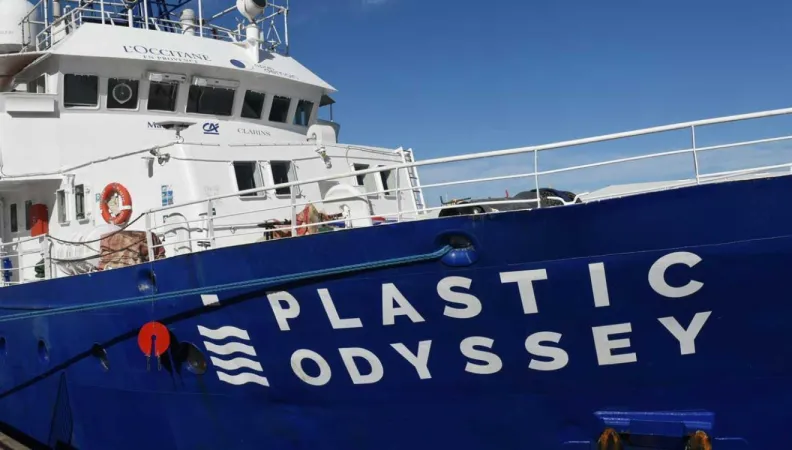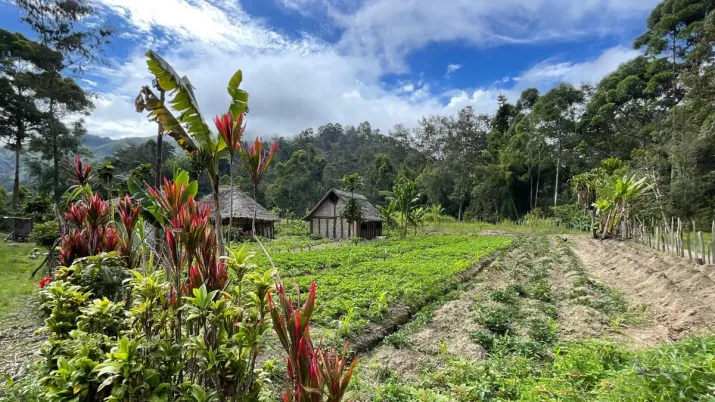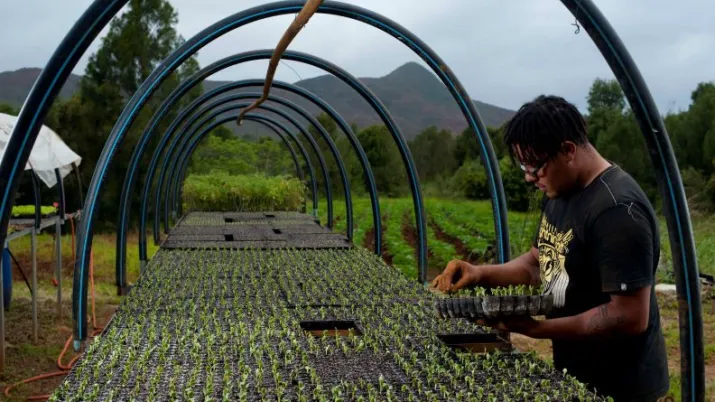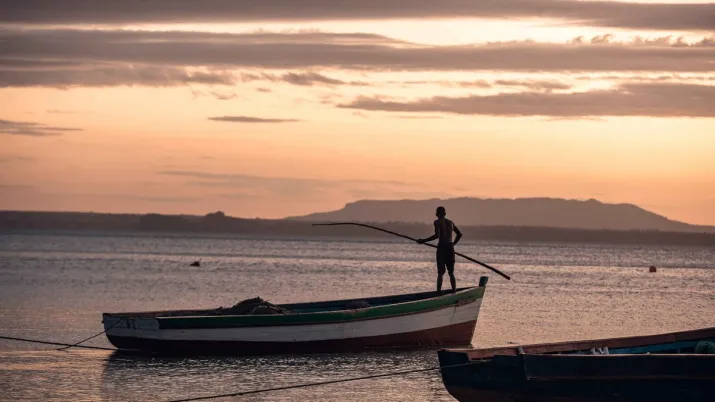Share the page
Sailing against the tide of waste: the ‘Plastic Odyssey’
Published on

As the world prepares for the UN Ocean Conference (UNOC), set to take place from 9 to 13 June 2025 in Nice, France, the stopovers of the laboratory ship Plastic Odyssey in the Indian Ocean mark an unprecedented regional mobilization in the fight against plastic pollution.
Despite ongoing efforts, beaches in the Indo-Pacific region are constantly covered with plastic debris. In response, the Indian Ocean has become the scene of tangible international action. The arrival of the Plastic Odyssey vessel at the end of April marked a pivotal moment in the Indian Ocean Plastic Expedition (ExPLOI) project, an initiative funded by AFD and the French Facility for Global Environment (FFEM), and led by the Indian Ocean Commission (IOC) in partnership with the French National Research Institute for Sustainable Development (IRD).
A tide of plastic, a structural emergency
Every minute, the equivalent of one garbage truck’s worth of plastic is dumped into the oceans. An shocking figure, reflecting a global production and consumption system that has become unsustainable. In 2022 alone, 430 million tons of plastic were produced, of which only 9% was recycled.
In Mauritius, for example, the situation is equally alarming. Every year, 75,000 tons of plastic waste end up in the Mare Chicose landfill, with a recycling rate of just 4%. This pollution is both visible – on beaches – and invisible, as it breaks down into microplastics, contaminating water, marine species and human food chains.
Automatic subtitles available in Settings
The ExPLOI project: tangible progress in the Indian Ocean
Plastic Odyssey’s various stopovers in the Indian Ocean are playing an instrumental role in tackling this emergency. They are part of the ExPLOI project, which pursues three main objectives:
- Improve scientific knowledge of marine plastic pollution
- Raise awareness of environmental issues among citizens, especially young people
- Promote local circular economy initiatives geared towards island environments
“The ExPLOI project is a human and scientific adventure. But it’s also a proactive message: yes, alternatives do exist. And yes, it is our duty to make them a reality in places with the most urgent needs,” said Laetitia Habchi, AFD’s Director in Mauritius, at the launch conference in Port Louis.
Plastic Odyssey: a floating laboratory and a driver of innovation
In collaboration with some 20 universities, NGOs, researchers and local stakeholders, Plastic Odyssey is a catalyst for innovation and cooperation. Its program includes educational workshops, technical experiments, waste recovery initiatives, and outreach activities with young people in Mauritius.
Education and awareness are essential, but not enough
While raising awareness plays a crucial role, it will not be enough to stem the plastic tide. A recent study shows that even maximum citizen engagement would only reduce plastic leakage by 20%. The heart of the problem is systemic: 60% of plastic waste is from single-use packaging.
“In the face of an ocean of plastic, the goodwill of citizens is like a rowboat without oars. It’s valuable, but not enough. Regulating plastic production through legislation is essential” added Laetitia Habchi.
Watch the statement by Simon Bernard, CEO of Plastic Odyssey, from 12:55 to 13:42. Automatic subtitles available in Settings.
Regulating at the source: a collective responsibility
Today, 99% of plastic is made from fossil fuel derivatives, and the petrochemical industry is booming. Under the auspices of the UN, international efforts towards a binding treaty have made little progress. Indeed, UN members failed to adopt an ambitious text during the session in Nairobi in November 2023.
A trajectory to change, here and now
Yet the territories of the Indian Ocean want to show that alternatives paths are possible. ExPLOI is experimenting with low-tech, local, and replicable solutions, including circular channels, community engagement and support for green entrepreneurship. As Laetitia Habchi explains,
“Plastic is not an accident of fate. It’s made by humans. And what humans have made, they can change.”
Following its stopover in Reunion and Mauritius, and now on its way to Madagascar and the Comoros, Plastic Odyssey brings a message of both hope and responsibility.



